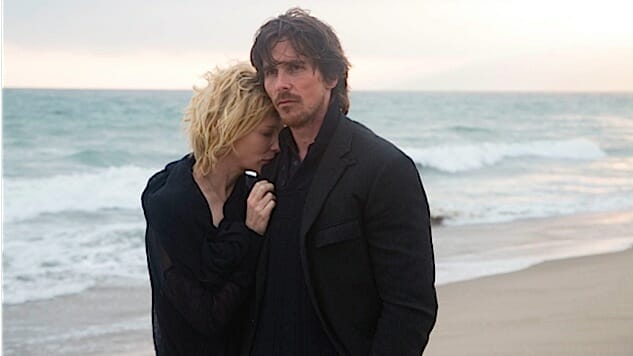Knight of Cups

The haunting, transcendent etherealness of Terrence Malick that we take for granted these days is something we nearly never got to know. Back in 1973 Malick’s true-crime debut Badlands , while stunning to behold and brilliantly composed, lacked the dreamy voiceovers and the lingering meditations on nature we’ve come to expect from the famously reclusive director. It wasn’t until Days of Heaven in 1978 that Malick started to experiment and fully express these now signature filaments of filmmaking. Then, as Malick laid out his next few projects (one called Q that concerned origins of the universe and man’s place in it and would ultimately become The Tree of Life), he ran into varying degrees of conflict with the studio and retreated into a self-imposed 20-year hiatus (in Paris), before returning to the screen with The Thin Red Line, the auteur’s contemplation on man and war based on James Jones’s account of the U.S. campaign in the South Pacific during the Second World War.
Since then, Malick has released four movies, all artfully imbued with discovery and revelation. The first two, The New World and arguably his magnum opus, The Tree of Life, take place in unique temporal settings and deal with larger cultural and philosophical themes. Comparably, his latest, and 2012’s To the Wonder, are rooted in the material inward now. As a result, neither resonate with quite the provocative soulfulness of the director’s prior works. Malick’s newest, Knight of Cups, begins with Sir John Gielgud reciting The Pilgrim’s Progress as we get heavenly imagery of the aurora borealis from a celestial high before we settle in on a distant-looking Christian Bale rooted in the glitzy concrete jungle of Los Angeles as the venerable Brian Dennehy voices over the titular tale of a knight, who on a quest, succumbs to a sleep potion. This makes sense as Bale’s Rick is a screenwriter on the cusp of his biggest payday, though he’s in a creative funk and spends most of his days dallying with one lithesome body (or bodies) after the next. The title, too, is a reference to the tarot card, which when right side up connotes the bringer of ideas (hey, that must be the screenwriter) but when upside down (as the movie’s poster shows Bale) implies false promises and chicanery—but who is fooling whom?
With so much at his feet, Rick’s not a settled man. He’s searching, for what we don’t exactly know as he descends into strip clubs and casinos to work it out. It’s a pretty thin and decadent existence, though in flashback we learn that Rick was married to a smart, unpretentious doctor (Cate Blanchett) who tends to hardship cases from the inner city. (Their marriage is doomed just by the topography of their clientele alone.) We then bump into Rick’s brother (Wes Bentley, who never seems to age) full of spit and their dad (Dennehy) pushing the blame back and forth for the demise of a third brother. This is about as close as the film gets to registering a palpable human heart. There’s also the dilemma with a married woman (Natalie Portman) who becomes pregnant and unsure as to whom the father is. Occasionally, one get a sincere sense of yearning and a glimmer of happiness, but it’s so brief and ephemeral, it’s gone before the viewer can really engage with the emotional complexity of it all.
-

-

-

-

-

-

-

-

-

-

-

-

-

-

-

-

-

-

-

-

-

-

-

-

-

-

-

-

-

-

-

-

-

-

-

-

-

-

-

-








































